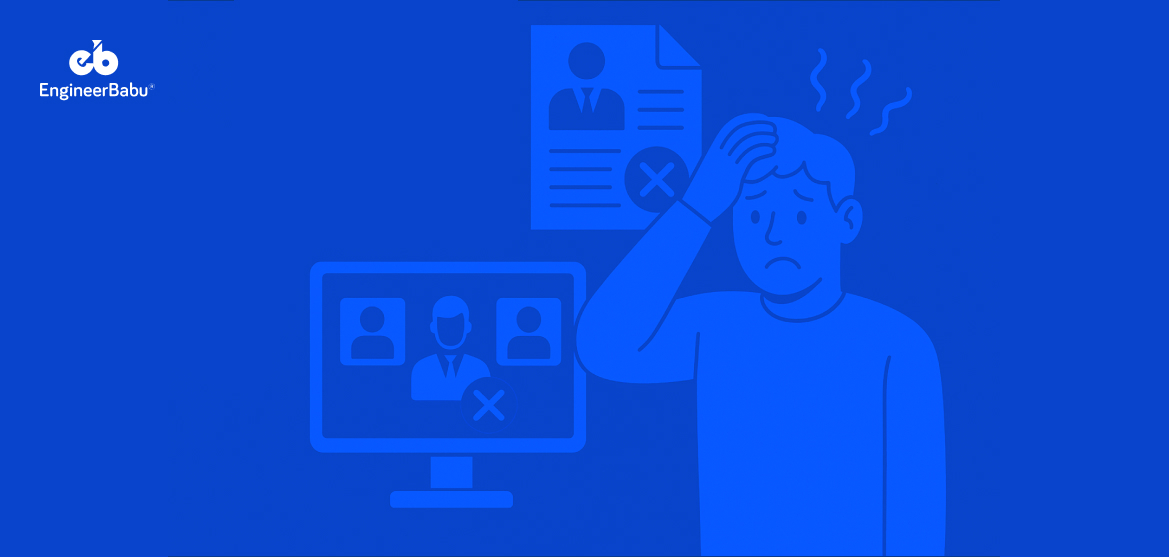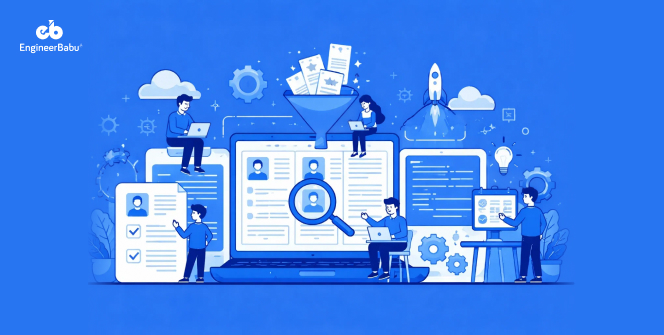Hiring a Ruby on Rails developer in 2025 might seem straightforward, but that is rarely the case. Startups and enterprises alike continue to face challenges, not because of the tech, but due to poor hiring decisions. With the market full of talent, knowing who to trust becomes more complicated than ever.
The cost of hiring the wrong person goes beyond finances. One bad hire can slow down product development, damage team morale, and introduce code that requires rewriting within months. For instance:
- A Forbes Tech Council article reports that poor hires slow innovation, often costing up to 30% of the employee’s first‑year salary, and requiring up to 70% more management time.
These setbacks hit especially hard when time-to-market is critical.
In this post, we break down the most common mistakes to avoid when hiring Ruby on Rails developers, from rushing the process to undervaluing soft skills. Avoiding these errors often means the difference between a launch-ready product and a project that stalls indefinitely.
1. Prioritising Cost Over Competence
It might seem wise to hire remote developers, offering the lowest rate. However, the cheaper the hire, the greater the risk of low-quality code, missed deadlines, or flawed architectural decisions.
Key problems with underqualified low-cost hires:
- They lack deep Rails experience.
- You spend more fixing their work.
- They fail to follow Rails conventions or write maintainable code.
Startups and growing teams benefit more from long-term value than short-term savings. The real cost appears months later, when you’re refactoring everything they delivered. One of the most common mistakes to avoid when hiring Ruby on Rails developers is focusing on cost instead of capability.
2. Skipping Technical Evaluations
A good conversation does not equal good code. Many hiring managers skip code reviews or live tests because the candidate “sounds experienced” or “has worked at a startup.” That approach carries risk.
Instead, evaluate:
- Their understanding of Rails-specific concepts (ActiveRecord, routing, testing).
- Ability to structure real-world code.
- How they approach problems in practical coding tasks.
Skipping evaluations remains one of the simplest mistakes to avoid when hiring Ruby on Rails developers. Without concrete proof of hands-on ability, you take an unnecessary gamble.
3. Ignoring Framework-Specific Expertise
Hiring a generalist developer may seem efficient. However, Rails brings its own philosophy, conventions, and tooling. You need someone who knows the Rails way.
What to look for:
- Familiarity with Rails best practices.
- Experience with tools like Sidekiq, Devise, RSpec.
- Awareness of changes across Rails versions and their implications.
Many developers claim Rails experience after working on small apps. Deep expertise matters, especially for teams building scalable products. So, look for developers with skills to integrate frameworks like React JS with Ruby on Rails.
4. Rushing the Hiring Process
When deadlines loom, hiring the first seemingly decent candidate becomes tempting. Yet hasty decisions often result in poor technical or cultural fits. Moreover, rushing is one of the most damaging mistakes to avoid when hiring Ruby on Rails developers.
Quick hiring often leads to:
- Minimal vetting.
- Missed warning signs in code or behaviour.
- Misaligned expectations about roles and responsibilities.
Therefore, a short delay that helps you hire properly is far better than three months spent cleaning up after the wrong hire.
5. Overlooking Soft Skills
Overlooking still remains one of the subtler yet costly mistakes to avoid when hiring Ruby on Rails developers. Great developers contribute more than clean code. They collaborate, explain trade-offs, and align with your product vision.
Thus, failing to prioritise soft skills causes team-wide friction and communication breakdowns.
What to observe:
- Clarity in both written and verbal communication.
- Ownership and proactive thinking.
- Comfort with feedback and cross-functional interaction.
Distributed teams especially benefit from high-empathy engineers who support clear, thoughtful collaboration.
6. Not Defining the Role Clearly
A vague job description brings in vague applicants. Before sourcing, define exactly what your product needs.
Clarify:
- Backend-only or full-stack responsibilities?
- Is speed or long-term architecture more critical?
- Should the developer own product thinking or focus on execution?
Without clear expectations, you end up interviewing the wrong people, and risk choosing someone who cannot deliver what your product requires.
7. Ignoring Past Work or Repositories
Experienced Rails developers usually have something to show, whether open-source contributions or private code samples. If you skip this review, you make an avoidable oversight.
Why review matters:
- Reveals how they structure codebases.
- Shows naming logic, documentation habits, and test coverage.
- Reflects judgment in real-world projects.
Ask for GitHub links or walk through previous pull requests. Among the mistakes to avoid when hiring Ruby on Rails developers, this one offers the easiest fix.
8. Underestimating Testing and QA Mindset
Rails thrives when built with a testing-first approach. Developers who cut corners on tests leave your app fragile and harder to scale.
What to verify:
- Proficiency with RSpec or Minitest.
- Experience using unit and integration tests.
- Understanding of CI/CD pipelines and automation.
Of all the mistakes to avoid when hiring Ruby on Rails developers, overlooking their testing mindset brings the most hidden long-term damage.
9. Failing to Evaluate Culture Fit
Even a highly skilled developer may underperform if they do not align with your team culture. This becomes more visible during long-term collaboration.
What to consider:
- Are they self-directed and consistent?
- Can they handle change and ambiguity?
- Do they work in sync with your pace and mission?
A brilliant dev who disrupts the team dynamic adds more risk than reward. Cultural alignment remains key.
10. Hiring Without Long-Term Thinking
Hiring “just to get started” often leads to poor decisions. Ruby on Rails Development projects evolve quickly. What you build in version one affects everything that follows.
Think ahead:
- Will this developer evolve with the product?
- Can they mentor others or improve the stack over time?
- Do they show interest in the product vision, or just complete tasks?
Avoid short-term thinking. Sustainable growth requires a developer who can grow with your platform and contribute meaningfully.
Conclusion
These ten common mistakes to avoid when hiring Ruby on Rails developers cause delays, frustration, and wasted investment. Whether you’re looking to hire Ruby on Rails developers or expanding a seasoned team, each decision impacts your future build quality and velocity.
Remember, hiring well goes beyond resumes and portfolios. It involves mindset, communication, and alignment with your product’s goals.
When you prioritise clarity and experience over speed or cost, you create space for your product to scale without unnecessary setbacks.
FAQs
1. What are the top traits to look for in a Ruby on Rails developer?
Strong command over Rails conventions, experience with tools like Sidekiq and RSpec, and an understanding of API development are must-haves. Look for developers who communicate clearly, write maintainable code, and understand both business needs and technical depth.
2. Is it better to hire full-stack Rails developers or backend-only?
It depends on your product’s scope. Full-stack developers are ideal for lean teams or MVPs. For complex frontends or React-based apps, hiring a backend-only expert and pairing them with a dedicated frontend developer offers better long-term scalability.
3. How do I compare Ruby on Rails with other frameworks before hiring?
If you’re evaluating backend options before hiring, check out comparisons like Ruby on Rails vs Django to understand how Rails handles rapid prototyping, security, and developer productivity compared to Python-based frameworks.
4. Can Ruby on Rails developers work with modern frontends like React?
Rails pairs well with frontend libraries like React or Vue. In fact, many companies use this combo to balance performance with maintainability. If you’re exploring frontend options, compare Ruby on Rails vs JavaScript stacks to align better with your hiring roadmap.
5. What are the biggest mistakes to avoid when hiring Ruby on Rails developers?
The most costly mistakes to avoid when hiring Ruby on Rails developers include rushing the hiring process, skipping technical evaluations, ignoring cultural fit, and prioritising cost over long-term capability. Avoiding these errors improves both product quality and developer retention.




